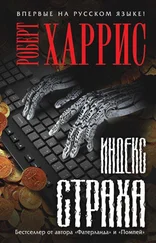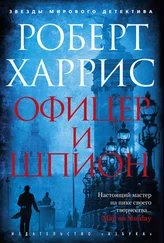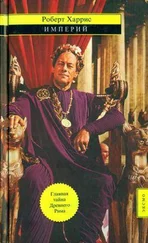Oh, Ralph, thought Legat, poor dear cracked Ralph, you saw it all.
He let himself into his house and turned on the light. Out of habit he called a greeting and waited for a reply. But he could see that they had all gone, and in a hurry by the look of it. The silk jacket Pamela had worn at lunch was draped over the finial at the foot of the banisters. John’s tricycle lay on its side and blocked the passageway. He righted it. The stairs cracked and creaked beneath his feet. The wood was rotting. The neighbours complained about the moisture coming through the party wall. And yet Pamela somehow had contrived to make the place chic — a profusion of Persian rugs and crimson damask curtains, peacock and ostrich feathers, beads and antique lace. She had an eye, no doubt about it: Lady Colefax herself had said so. One night she had filled the house with scented candles and made it into a fairyland. But the next morning the smell of damp was back.
He went into their bedroom. Even though the lamp was broken, there was just sufficient light from the landing for him to see what he was doing. Her discarded clothes were heaped up on the bed and strewn across the floor. He had to step over her underwear to reach the bathroom. He packed his razor, shaving brush, soap, toothbrush and tooth powder into his sponge bag and returned to the bedroom in search of a shirt. A car was driving slowly down North Street. He could tell by the whine of its engine that it was in a low gear. The glow of its headlights lit up the ceiling, projecting an outline of the window frame across the opposite wall; the dark lines swung like the shadow on a sundial. Legat paused with his shirt in his hand and listened. The car seemed to have stopped outside with its engine running. He moved over to the window.
It was a small car — two doors, the passenger’s open. He heard a clatter downstairs. A moment later a figure in a hat and a dark coat moved smartly away from the house, folded itself back into the car and pulled the door shut.
Legat was across the bedroom in two strides. He took the stairs three or four at a time, collided with the tricycle and almost fell full-length. By the time he opened the front door, the car was just rounding the corner into Great Peter Street. For a second or two he gazed after it, recovering his breath, then stooped to retrieve the envelope from the doormat. The stationery was heavy, official-looking: legal perhaps? His name was misspelt: Leggatt . He carried it into the sitting room and sat down on the sofa. He worked his finger under the flap and carefully tore it open. He didn’t pull the document out immediately. Instead he parted the envelope with two fingers and peered inside. It was his way of preparing himself for bad financial news. He could just make out the typed heading:
Berlin Mai. 30. 1938
OKW No. 42/38. g. Kdos. Chefsache (Streng geheim, Militär) L I
Within ten minutes he was on his way back to the office. Everywhere he looked he detected signs of anxiety — a ruby necklace of tail lights stretching all the way down Marsham Street to the petrol station where motorists were queuing for fuel; a hymn being sung in the open air within the cobbled precincts of Westminster Abbey as part of a candlelit vigil for peace; the silver flare of the newsreel cameras on the blackened walls of Downing Street silhouetting the dark silent mass of the crowd.
He was late. He had to squeeze his way through to get to Number 10, his overnight bag lifted high above his head. ‘Excuse me... excuse me...’ But the moment he was inside he saw that his effort had been wasted. The ground floor was deserted. The Ministers had already gone through for the 9.30 p.m. meeting of the Cabinet.
Cleverly was not in his office. Legat stood for a moment in the corridor and wondered what he should do. He found Syers seated at his desk, smoking a cigarette and staring out of the window. Syers glanced at his reflection in the glass.
‘Hullo, Hugh.’
‘Where’s Cleverly?’
‘In the Cabinet Room, standing by in case they decide to send Horace’s telegram to the Czechs.’
‘Is Cadogan in with them?’
‘I haven’t seen him.’ Syers turned round. ‘You sound a bit overwrought. Are you all right?’
‘Perfectly.’ Legat hoisted his bag to show him. ‘Just slipped back home to get some things.’
He left before Syers could ask him anything else. In his office he opened his bag and took out the envelope. It seemed treasonous simply to have brought it into the building, dangerous to be caught in possession of it. He ought to pass it up the chain of command, get it out of his hands as soon as possible.
By a quarter to ten he was crossing Downing Street, pushing his way more urgently now past the throngs of spectators. He went through the big iron gate on the opposite side of the road and into the vast quadrangle of ministerial buildings. In each the lights were burning: the Colonial Office in the bottom left-hand corner, the Home Office in the top left, the Indian Office top right, and immediately next to him, up a flight of steps, the Foreign Office. The night porter gave him a nod.
The corridor was grand and lofty in the Victorian imperial style, its extravagance calculated to awe those visitors whose misfortune it was not to be born British. The Permanent Under-Secretary’s room was on the ground-floor corner, overlooking Downing Street on one side and Horse Guards Road on the other. (Proximity being the index of power, it was a matter of pride to the Foreign Office that their PUS could be sitting opposite the Prime Minister in the Cabinet Room within ninety seconds of being summoned.)
Miss Marchant, the senior secretary on duty, was alone in the outer office. She normally worked upstairs for Cadogan’s short-sighted deputy, Orme Sargent, universally known as ‘Moley’.
Legat was slightly out of breath. ‘I need to see Sir Alexander. It’s very urgent.’
‘I’m afraid he’s too busy to see anyone.’
‘Please tell him it is a matter of the gravest national importance.’
The cliché, like the watch chain and the old-fashioned dark suit, seemed to come naturally to him. He planted his feet apart. Breathless and junior though he was, he would not be shifted. Miss Marchant blinked at him in surprise, hesitated, then rose and tapped softly on the PUS’s door. She put her head into the distant room. He could only just hear her: ‘Mr Legat is asking to see you.’ A pause. ‘He says it’s extremely important.’ Another pause. ‘Yes, I think you should.’ From the interior came a distinct growl.
She stood aside to let him through. As he passed he gave her a look of such gratitude she blushed.
The hugeness of the room — the ceiling must have been twenty feet high at least — emphasised the smallness of Sir Alexander. He was seated not at his desk but at the conference table. The surface was almost entirely covered by paper in various colours — white for minutes and telegrams, pale blue for drafts, mauve for dispatches, aquamarine for Cabinet papers, interspersed occasionally by brown foolscap files tied with pink ribbon. The Permanent Under-Secretary wore a pair of round-lensed tortoiseshell glasses, over the top of which he peered at Legat with an expression of some irritation. ‘Yes?’
‘I’m sorry to disturb you, Sir Alexander, but I thought you ought to see this at once.’
‘Oh, God, now what?’ Cadogan reached out, took the five typewritten pages, glanced at the first line –
Auf Anordnung des Obersten Befehlshabers der Wehrmacht.
— frowned, then flicked through to the last –
gez. ADOLF HITLER
Für die Richtigkeit der Abschrift:
ZEITZLER, Oberstleutnant des Generalstabs
— and Legat had the satisfaction of seeing him sit bolt upright in his chair.
Читать дальше












